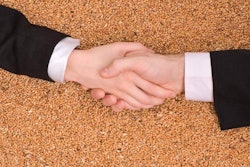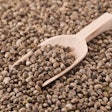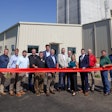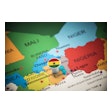A November workshop in the European Parliament focused on the benefits of EU pulses and the status of the protein crops sector. The event was organized by Copa & Cogeca1, FEFAC2 and COCERAL3 and hosted by MEP Petri Sarvamaa.
The program was timed appropriately because 2016 was designated the International Year of the Pulses (IYP) by the UN General Assembly. IYP 2016 aimed to heighten public awareness of the nutritional benefits of pulses as part of sustainable food production aimed towards food security and nutrition. The year has provided a unique opportunity to encourage connections throughout the food chain that would better utilize pulse-based proteins such as beans, lentils and peas. The goal was to further global production of pulses, better utilize crop rotations and address the challenges in the trade of pulses.
Europe has a deficit in vegetable protein supply. However, a broad and diversified access to feed ingredients is a key factor for the competitiveness of the feed and livestock industry in Europe. Pulses are known to have clear environmental benefits in terms of enhancing biodiversity and improving soil quality while ensuring quality feed supplies for animals. Pulses cover approximately 2.5 million hectares (6.2 million acres) of EU arable land and provide zones of pollination and nesting for bees, butterflies, birds and insects.
At the event, the EU Commissions’ Directorate-General for Agriculture underlined the strategic role of the Common Agricultural Policy (CAP) which supports protein crops. The agenda included the launch of a new initiative that provides up-to-date information on supply and demand trends via the creation of a comprehensive balance sheet for protein supply. Such a balance sheet will increase market transparency and enable the market potential of EU protein crops to be better assessed.
Sarvamaa said, “In the CAP post 2020 reform, the EU needs to provide more market tools that can push the pulses sector to reach its full potential. In our efforts to meet the ever-increasing demand of feed and food vegetable protein, the producers need support and tools to be able to provide nutritious and sustainable protein crops cost effectively and affordably for the end user.”
Max Schulman is the chairman of the Copa & Cogeca Cereals and Oilseeds Working Party. At the meeting, he said, “Protein crop production is already increasing in the EU, thanks to new measures under the CAP. But protein production needs to be further enhanced by providing producers with the right support and tools to produce protein crops cost effectively in the framework of the Common Agricultural Policy post 2020. Research and development also needs to be stepped up and genetic breeding techniques improved.”
Pekka Pesonen, Secretary-General of Copa & Cogeca, stressed that the workshop highlighted the fact that one of the main priorities of the working party is to explore all the opportunities that exist for use by EU protein sources to benefit the whole farming community.
Pavel Musil, chair of FEFAC’s Industrial Compound Feed Production Committee, presented the EU feed industry perspective. “The EU compound feed industry supports the development of European-wide solutions to enhance the competitive production of vegetable protein sources,” Musil said.
Moderator Paul Rooke, COCERAL board member, concluded the event, praising the willingness of industry and the EU Commission to work together to improve market data. He suggested the collaborative approach of the workshop be widened to include the plant breeding and food sectors. That action would be beneficial and build on the research opportunities presented during the workshop, according to Rooke.
1Copa & Cogeca: the united voice of farmers and agri-cooperatives in Europe. 2COCERAL: the European association of trade in cereals, rice, feedstuffs oilseeds, olive oil, oils and fats and agrosupply. 3 FEFAC: the European Compound Feed Manufacturers’ Federation.











